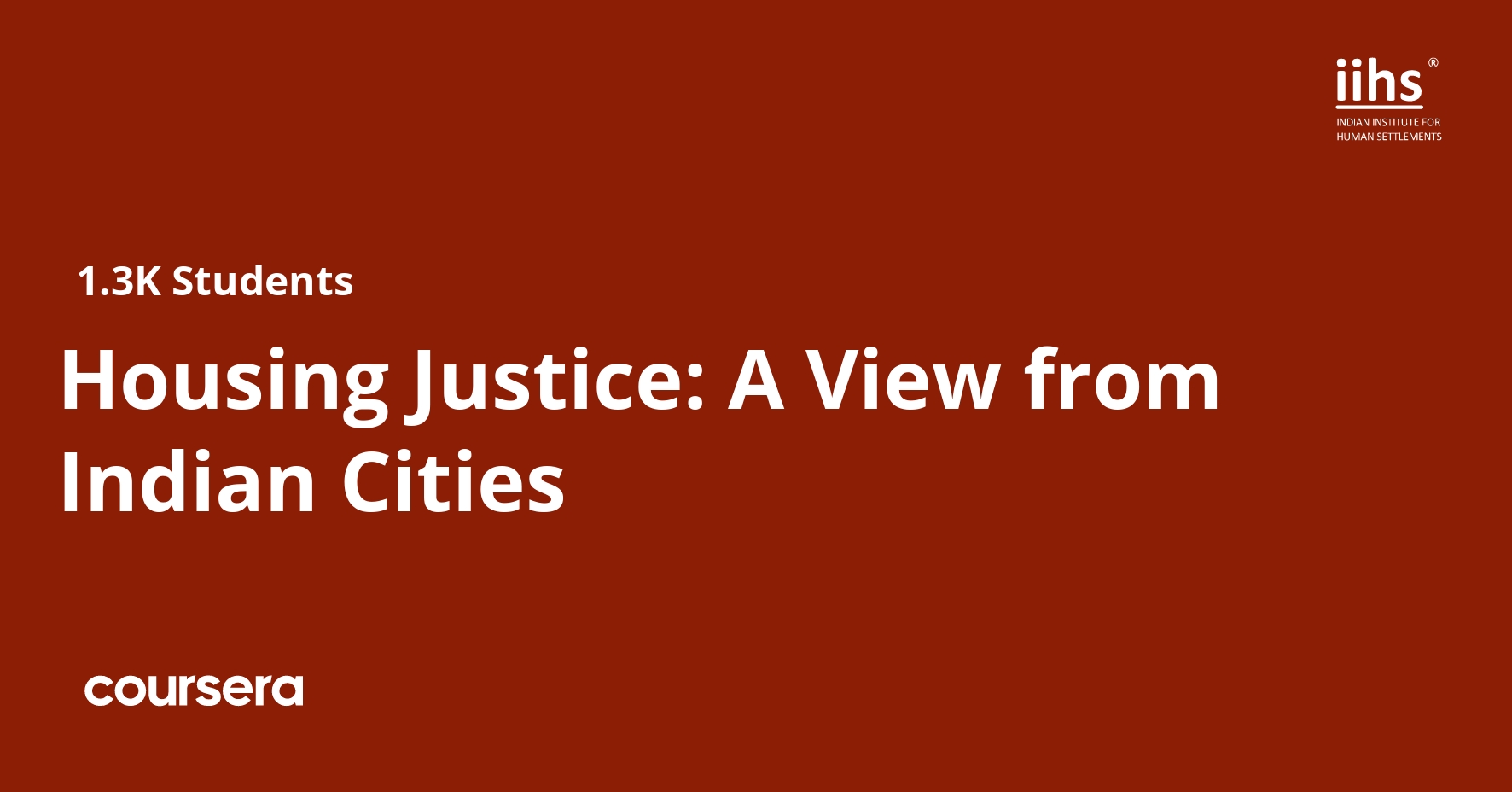Description
This course will introduce learners to different approaches to thinking about housing justice, bringing together material, ecological, social and spatial approaches to thinking about housing. Rooting itself in Indian cities, but speaking more broadly to struggles for housing justice more globally, it will offer a diagnosis of what housing justice looks like as well as the modes and practices that can move us towards it ranging from activism and direct action to public policy and participatory governance.
What you will learn
Introduction to the Course
This course introduces learners to different approaches to thinking about housing justice, bringing together material, ecological, social and spatial approaches to thinking about housing. Rooting itself in Indian cities, but speaking more broadly to struggles for housing justice more globally, it will offer a diagnosis of what housing justice looks like as well as the modes and practices that can move us towards it ranging from activism and direct action to public policy and participatory governance. Listen to the introductory video to get a sense of how its organised and our three key learning elements: lecture videos, interactive dashboards with additional resources materials, and then exercises to aid understanding. Then, take a second to introduce yourself in the Discussion Forum labelled ‘Introductions’. In case you have any questions for us, use the Discussion Prompt on Course Admin FAQs! And finally, we have a Pre-course Survey for you through which we would like understand more about your motivations and objectives. Do spend a few minutes on this survey questionnaire to help us improve the course as we go along!
Framing Module on Housing and Housing Justice
This module starts us off by unpacking our two key terms: housing, and housing justice. This course makes a fundamental move to say that housing is more than just houses. Housing is fundamentally economic, material, social, spatial and political at the same time. So start with the first video on the Introduction to Housing, spend time with the Interactive Dashboard and take Quiz 1 that will help you consolidate your understanding of this frame. Then move to the second video for the week – What is Housing Justice? Finish Quiz 2 after you hear the lecture. Then, spend some time on the discussion forum to debate these approaches to thinking about housing justice. Think about your own approach to these issues, as well as the frameworks we have offered you. There can be no one understanding of housing justice, so this is the week to debate and discuss!
Adequate Housing
This module offers a framework to think about just, or good, housing. Such housing must be affordable, adequate, and viable. We describe what these words mean, and then offer case studies from across the world on attempts to make housing affordable, adequate and viable. The Module is structured a bit differently this week. Hear the video (What makes housing inadequate?) first. It will describe the logics of the case studies we have presented in our Interactive Dashboard. Then head over to the dashboard, and click on the highlighted countries to download case studies of housing programmes, practices, and policies from all over the world. Finally, take the quick Quiz 3 to consolidate your learnings.
Rental Housing
Ownership is not necessarily the only path to resolving housing inequity. This module will introduce you to rental housing and other tenure systems, while elaborating on the well-known and lesser-known aspects of the rental housing market and how it is supposed to aid in the delivery of housing justice. Watch the videos on Rental Housing with respect to its three core stakeholders: the tenants, landlords and the city. Then spend some time crystallising your understanding of these systems and relating them with your own experiences and environments through the discussion thread. Finally, take the graded quiz 4 to consolidate your learning from this module.









